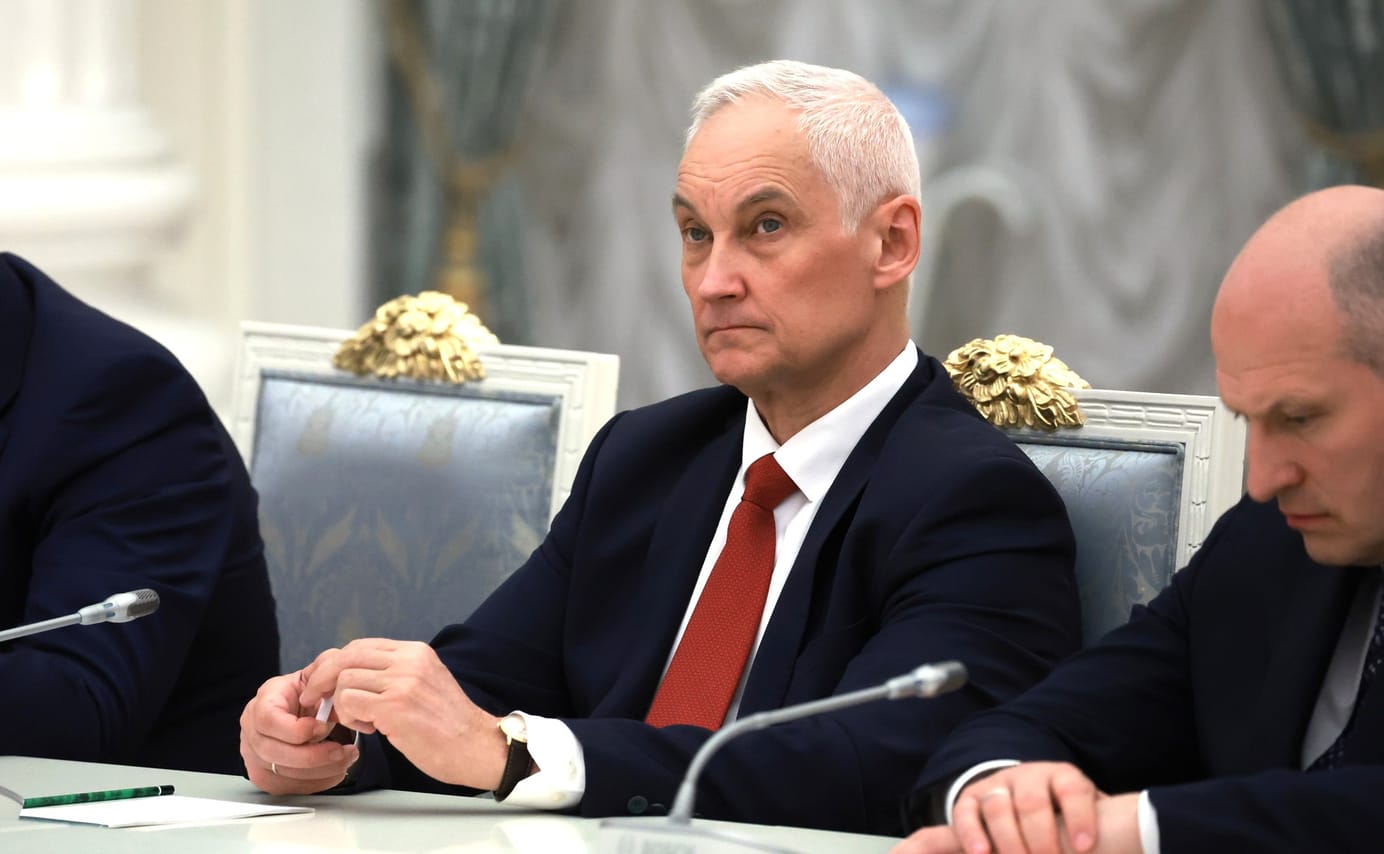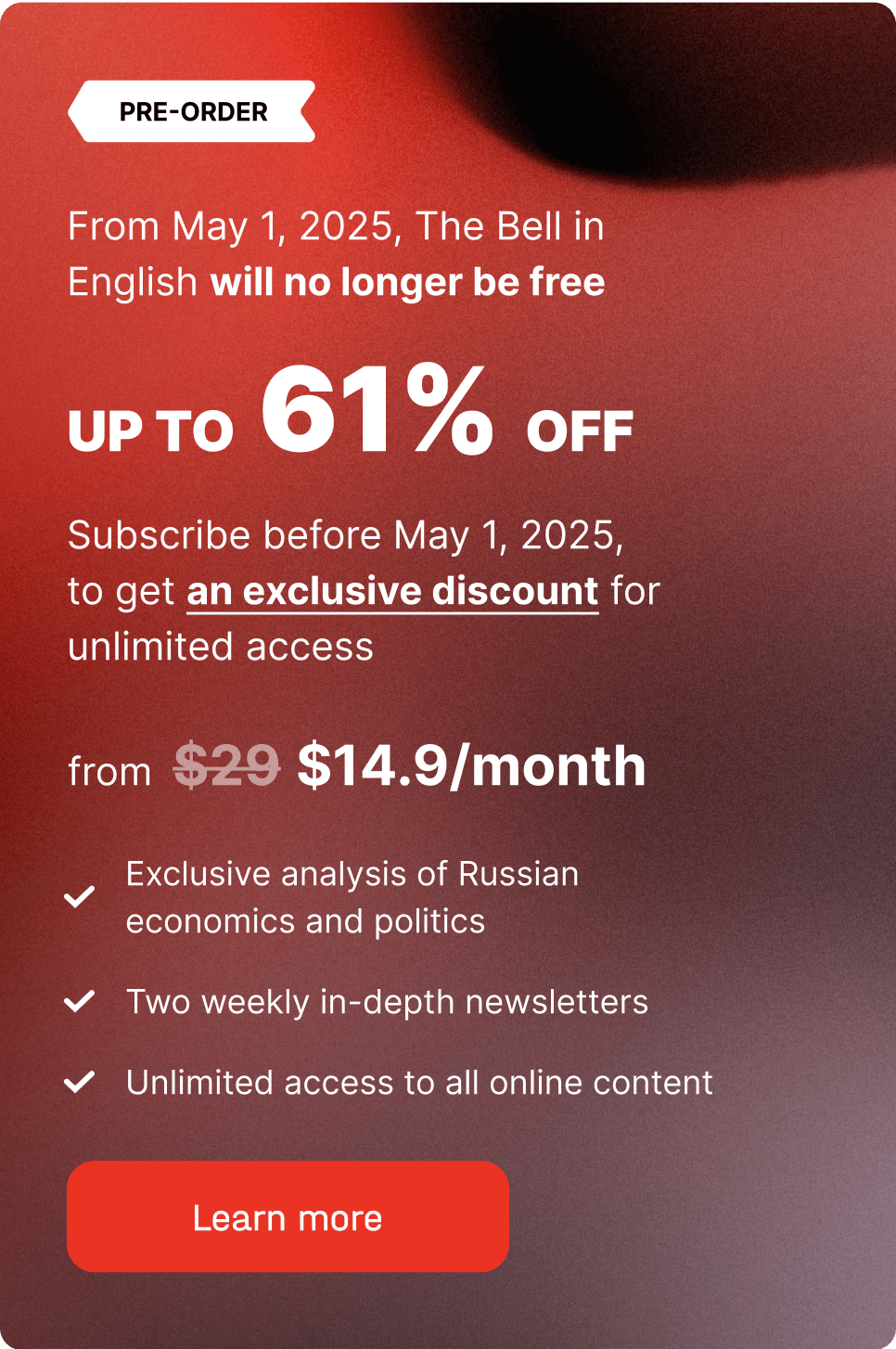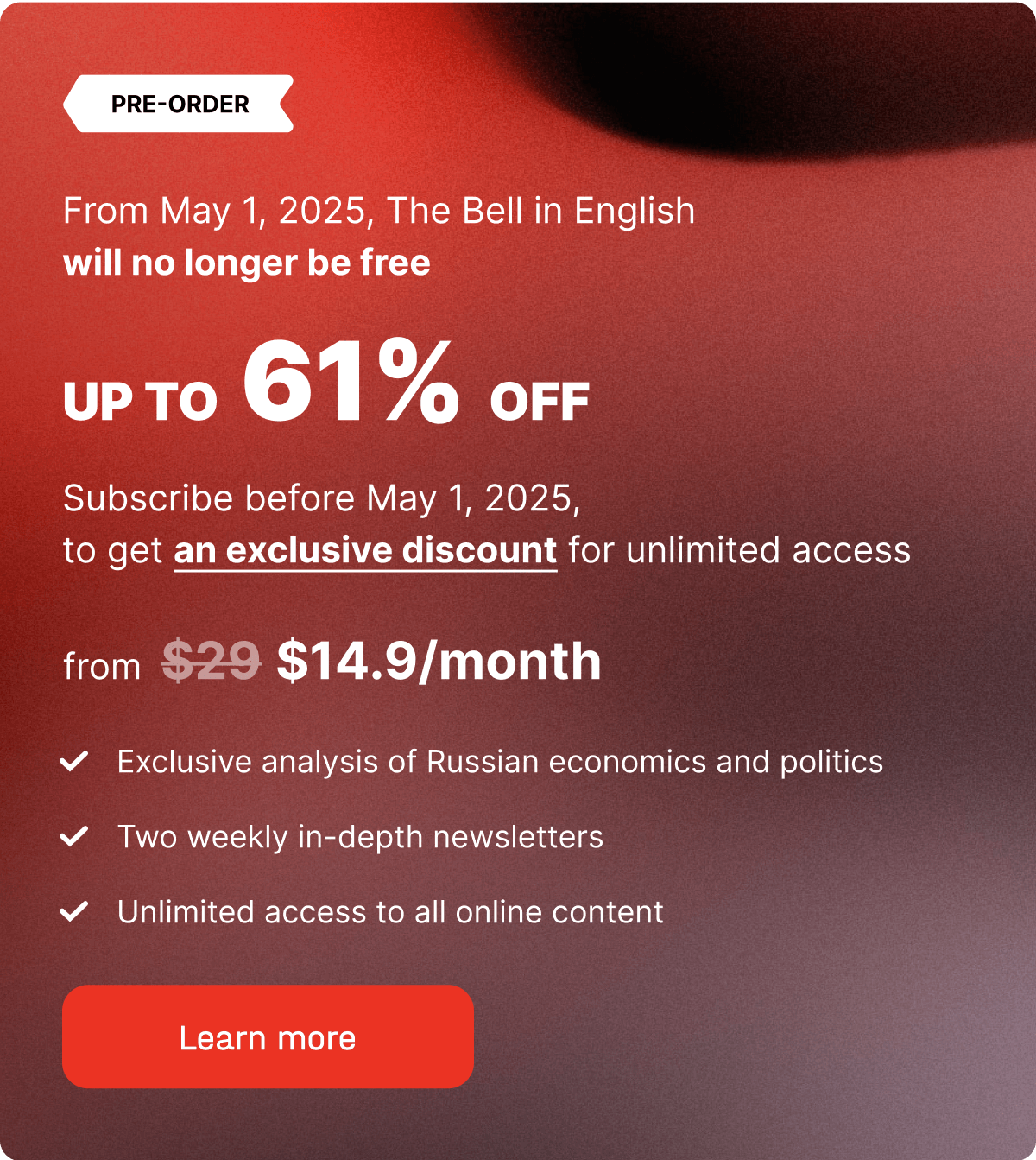
In a war of attrition, you want an economist as defense minister
Hello! Welcome to your weekly guide to the Russian economy — written by Alexander Kolyandr and Alexandra Prokopenko and brought to you by The Bell. This week our top story is about the appointment of economist Andrei Belousov as defense minister, and what it means for Russia’s war effort. We also look at Putin’s high stakes trip to China.
Appointment of ‘statist’ Belousov shows Russia settling in for long war
The appointment Sunday of Andrei Belousov as Russia’s defense minister was highly symbolic. President Vladimir Putin’s motivations for ditching Sergei Shoigu, who is usually seen with a chestful of medals, for the blue-suited economist Belousov can likely be summed up with Talleyrand’s maxim: “War is too important to be left to the military.” Either way, it’s clear the war in Ukraine is no longer seen as a crisis, but the “new normal.”
- Belousov’s task is to make the already-militarized economy more efficient. And he’s likely to be successful: he’s known as a smart economist and statesman, and several sources told The Bell he is not perceived to be deeply corrupt.
- In interviews, Belousov says the world economic order is outdated, and predicts there will be a fragmentation of global markets. He anticipates increased state involvement in economies, and trade wars that will be lost by Europe. Throughout his career, he has been seen as a “statist.” He supports a state-led industrial policy, protective trade barriers, rising taxes for business, price regulation, and state investment in the economy. However, Belousov is no fanatic, and does not want to eliminate private ownership, or ban foreigners from the economy.
- His appointment is reminiscent of that of Dmitry Ustinov as defense minister in 1976. Ustinov, an engineer by profession, replaced a succession of Soviet defense ministers distinguished by their military service in World War II, and he presided over a sharp rise in defense spending (against a backdrop of high oil prices and economic growth). In the final decade of the Soviet Union, the defense sector was the foundation of the economy, serving as an engine of growth and trumping everything from social spending to diplomacy. However, this caused immense problems in the civilian economy, and eventually ended up contributing to the Soviet collapse of 1991. The challenge for Belousov and his colleague Denis Manturov, who was promoted to first deputy prime minister in charge of industry this week, is to ensure Russia’s booming military-industrial complex does not end in a similar disaster.
- Putin seems to be aware of the risks. “The relationship between “guns and butter” needs to be organically integrated into the Russian state,” Putin said in public comments about Beluosov’s appointment. This was a reference to reasoning used by Soviet leader Mikhail Gorbachev in 1986: “The peculiarity of this five-year plan is that it is necessary to combine ‘guns and butter.’ This is hard.” Within a few years, the Soviet Union had collapsed, unable to survive such a contradiction. In a recent newsletter, we highlighted some of the growing similarities between Putin’s economic approach over the last decade, and Soviet-era five-year plans.

- A big part of Belousov’s new job will be to monitor military spending. Russia’s budget for defense and security, which has doubled since the full-scale invasion in 2022, currently stands at 8% of GDP (on Wednesday, Putin said it was 8.7%). And this spending is driving rapid economic growth, and even risking economic overheating. In the third quarter of last year, Russia’s GDP grew 5.7%; in the fourth quarter the figure was 4.9%. In the first quarter of this year, according to preliminary data released by the State Statistics Service on Friday, it was 5.4%. This quarter it’s running at 4.4%. That means rapid inflation (7.7% since the start of the year). As a result, the Central Bank did not reduce interest rates last month (currently a prohibitive 16%) but actually discussed raising them to 17%.
- Military spending, however, is more than an economic growth hormone. It has also become a mechanism to redistribute wealth. Higher wages, and big payments to soldiers and their families, have significantly improved the financial circumstances of the poorest Russians. According to independent pollster the Levada Center, the number of Russians who have seen a deterioration in the fairness of wealth distribution has almost halved from 45% in 2021 to 25% in November.
Why the world should care
As Putin embarks on his fifth presidential term, it’s clear Russia is settling in for a long war. Belousov’s appointment shows that defense-related spending is very much the top priority. The Kremlin is gambling on a war of attrition, and this sort of war is won just as much by economic managers as soldiers.
Putin seeks to preserve status quo in China trip
Putin’s visit to China this week was no mere courtesy call. Even before the invasion of Ukraine, relations between Moscow and Beijing were developing – now, amid Western sanctions, the tempo has increased. Putin met Chinese leader Xi Jinping twice last year: Xi came to Moscow in March, and Putin went to Beijing in October for the Belt and Road forum.
- The value of trade between Russia and China topped $240 billion last year. China provided 38% of Russian imports (43% in the first half of the year) and received 31% of Russia’s exports. For some categories of goods, Russia now depends on China for more than 50% of its imports. For example, automobile exports from China to Russia went up 594%, and there was almost a 600% increase in tractor imports.
- A lot of high-ranking officials traveled with Putin (with the exception of Prime Minister Mikhail Mishustin, who never travels with Putin but regularly visits China himself). China is now Russia’s main economic partner, and the success of that relationship largely defines the success of the Kremlin’s efforts to evade Western sanctions, according to expert Alexander Gabuev. “Bad news for Ukraine & Kyiv's allies: Putin has tasked his A-team with it.” Gabuev tweeted Monday.
- The most important meeting was an informal, behind-closed-doors encounter between Xi and Putin, said presidential aide Yury Ushakov. Putin was joined for this by Russian officials including Foreign Minister Sergei Lavrov, new Defense Minister Andrei Belousov and his predecessor Sergei Shoigu, who is now head of the Security Council. Based on that list, we can assume the agenda was dominated by military and technical cooperation.
- The head of state-owned gas giant Gazprom, Aleksei Miller, was not part of the delegation. That suggests that there is still no agreement on the construction of the “Power of Siberia 2” pipeline that would supply Russian gas to China, and which has been under discussion for years. Likewise, there were no significant commercial or intergovernmental agreements. Instead, agreements were inked on the creation of a cross-border nature reserve, the export of Jerusalem artichokes, and a joint development on the Sino-Russian border. State media groups also signed memoranda.
- Xi’s remarks after the encounter were restrained, which analysts said reflected Beijing’s desire not to irritate the U.S. and the European Union.
Why the world should care
The invasion of Ukraine has been something of a gift from Putin to China. Beijing received a large-scale testing ground for its alternative to Western financial infrastructure, while Chinese companies and its second and third tier banks acquired a reliable trading market. Both parties will seek to maintain this status quo.
Figures of the week
At its most recent board meeting, Central Bank directors debated raising interest rates to 17%, according to materials released by the Bank this week. There was a particular focus on the tight monetary conditions, and whether they are enough to reduce inflation.
Between May 7 and May 13, weekly inflation increased from 0.08% to 0.17%, according to the Ministry of Economic Development. Annual inflation increased from 7.81% to 7.91% in the same period. Food prices were up 0.09%, non-food products rose 0.23%.
Cross-border transfers involving private citizens in the first quarter of this year amounted to $5.13 billion, according to Central Bank figures. That’s the amount of foreign currency Russians removed from the country. The figure is $388 million lower than the fourth quarter of last year, with high interest rates apparently encouraging people to save more in Russia.
Russian GDP grew 5.4% in the first quarter of 2024, according to preliminary data released by the State Statistics Service on Friday. In the fourth quarter of last year, the economy grew 4.9%; in the third quarter the figure was 5.7%.
Further reading
Russia’s Economy: Closer to the Edge Than it Looks
Putin’s trip to China may show US threats are wishful thinking



PAID SUBSCRIPTION LAUNCH
From May 1, 2025, The Bell in English will no longer be free
From May 1, 2025, all The Bell’s newsletters and online content will be behind a paywall. We have taken this decision so that The Bell can remain financially independent, and maintain our high standards of journalism and economic expertise






